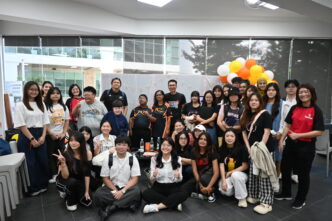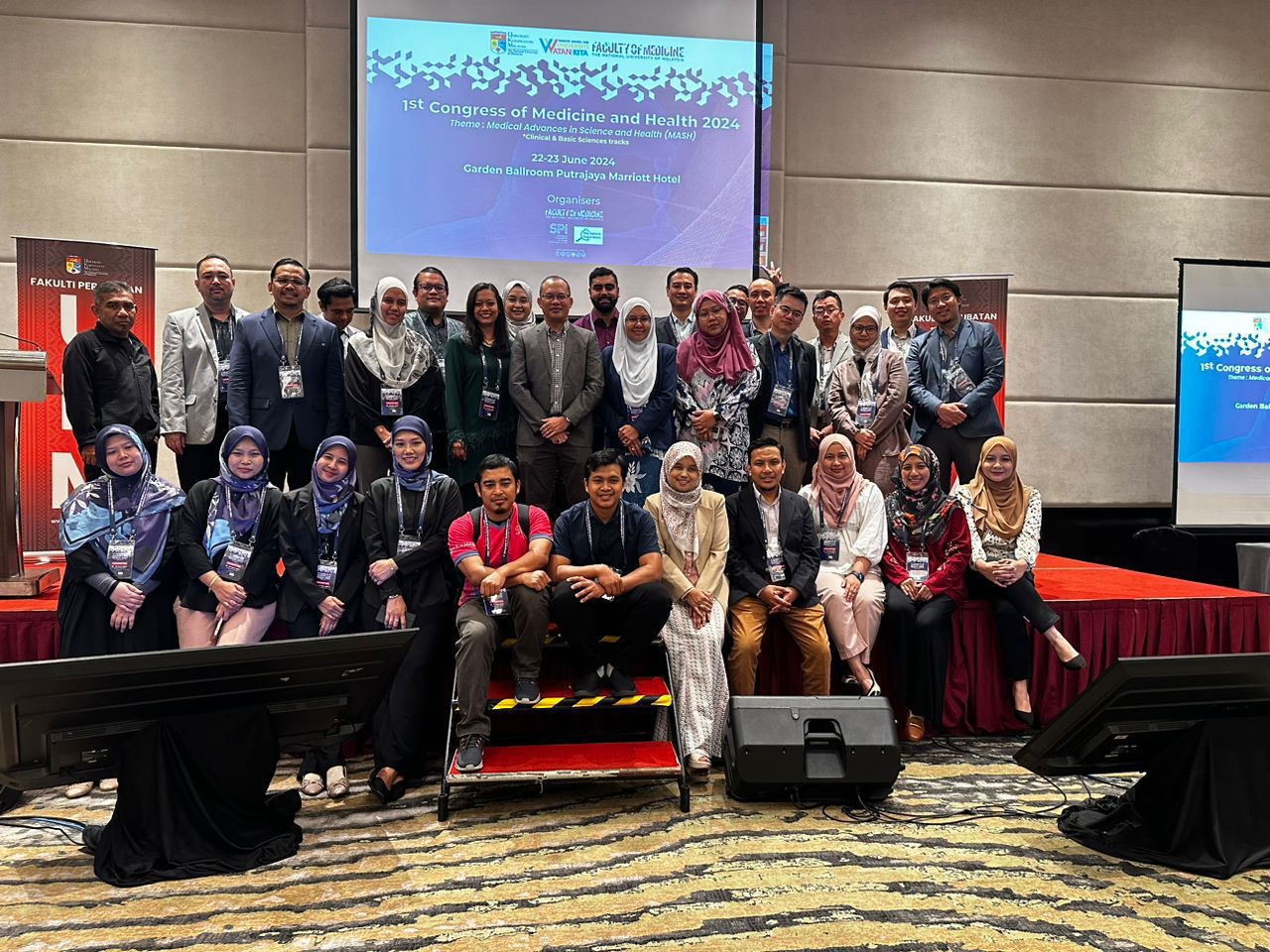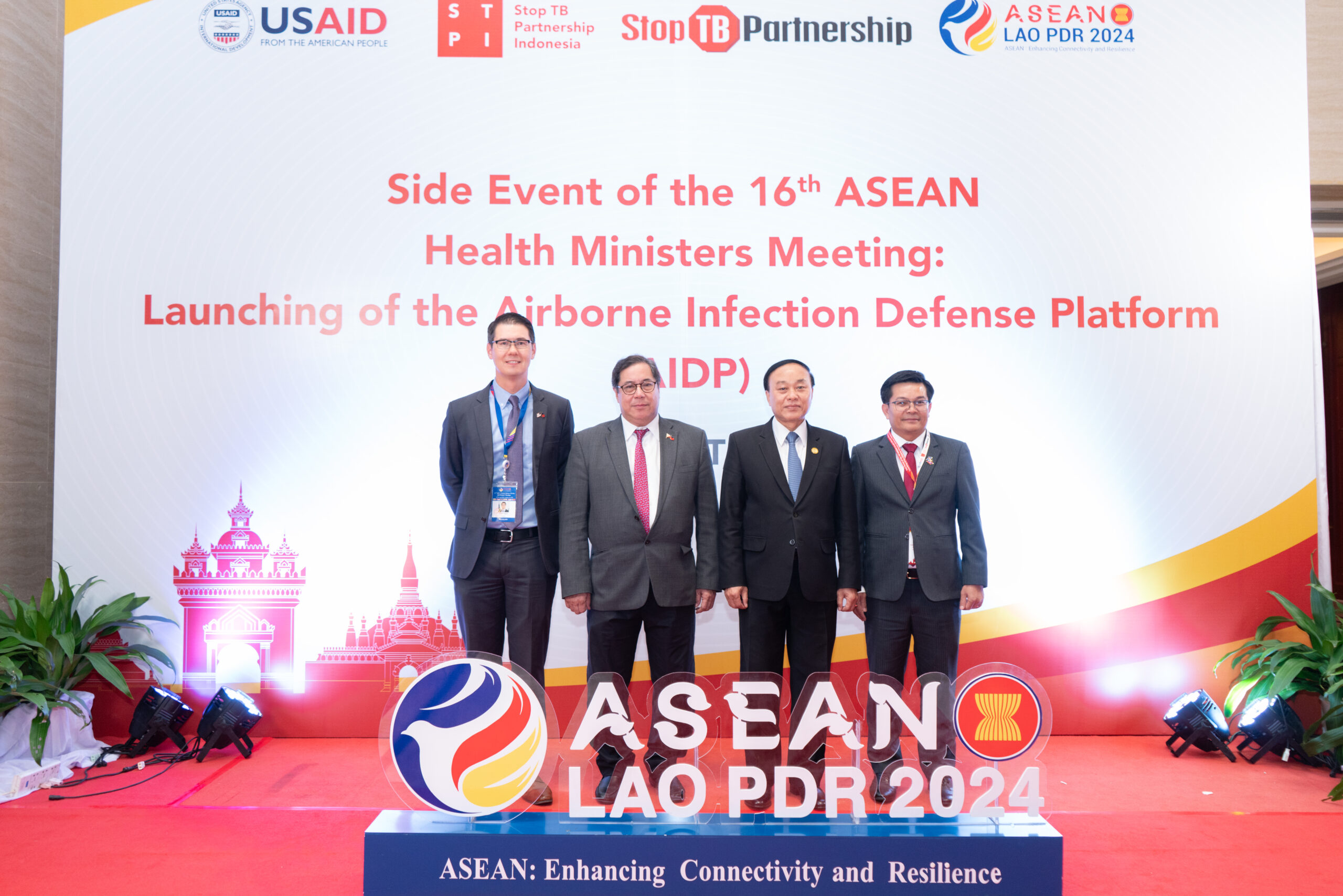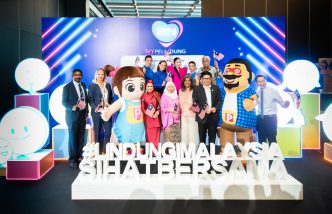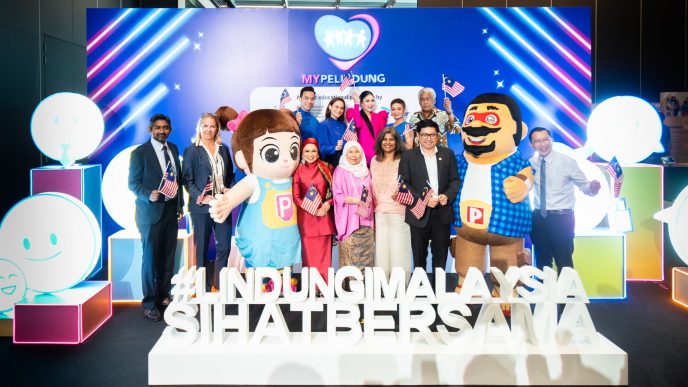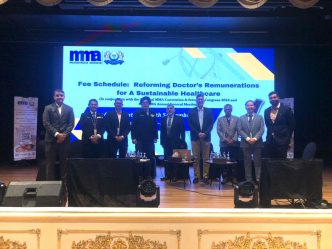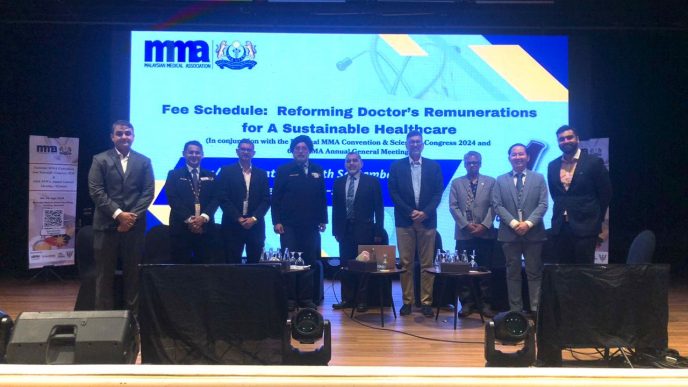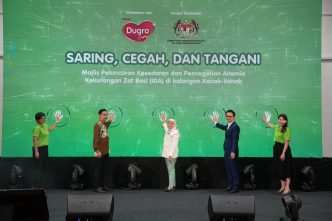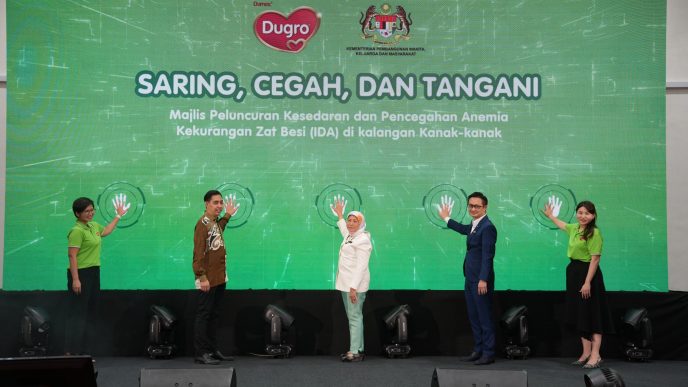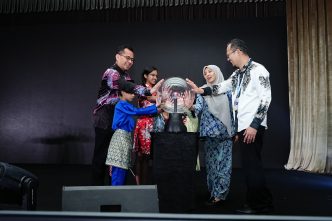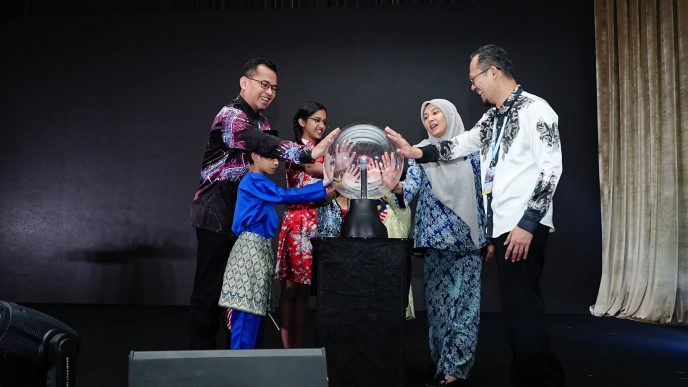To raise awareness and foster greater understanding of Prader-Willi syndrome (PWS), students from the Diploma in Communication (DICM) programme at Taylor’s College organized Voices for Hope, a meaningful campaign dedicated to raising awareness for PWS and funds for PWSA Malaysia. The event was held in collaboration with PWSA Malaysia and in conjunction with DICM’s 25th anniversary celebration, reflecting how the use of communication can spark real-world impact and awareness.
WORDS LIM TECK CHOON
When a child keeps asking for seconds or thirds, most parents react in familiar ways: “You’ve had enough!” or “Eat more, you’re still growing.”
However, for some children, a constant craving for food isn’t just a quirk of appetite.
It could be a symptom of something much more serious: hyperphagia, or an uncontrollable hunger often linked to Prader-Willi Syndrome (PWS).
Prader-Willi syndrome (PWS) is a rare genetic disorder characterized by insatiable hunger.
Children with this condition are unable to feel full, so they overeat and become severely obese as a result. Under extreme conditions, someone with this condition can literally eat themselves to death.
Beyond appetite issues, it can also involve developmental delays, short stature, and hormone deficiencies.
Once the child is discovered early to have this condition, parents and family members must work closely to ensure that:
- The child is placed on an eating schedule of fixed, calorie-restricted meals.
- Sometimes, the fridge and other places where food is kept need to be locked up to keep the child from eating outside of scheduled mealtimes.
- The child must not be allowed to attend eating situations without close supervision – someone needs to watch them closely during birthday parties, school lunchtimes, etc.
- The child receives support from dietitians, physical therapists, and endocrinologists to ensure that their growth and development will not be severely affected by their limited-calorie diet.
- The child receives support from counsellors or psychologists to manage their compulsive food-seeking behaviour, learning difficulties, or OCD-like tendencies.
Growth hormones can be offered for the child’s growth and improve their body composition.
PWS: RARE AND OFTEN UNDIAGNOSED
Although PWS affects approximately 1 in 15,000 births globally, awareness of the condition remains low in Malaysia.
As a result, it often goes undiagnosed or is mistaken for other conditions.
Currently, only 199 individuals in the country have been formally identified with PWS, according to the Prader-Willi Syndrome Association Malaysia (PWSA Malaysia).
That number suggests many more could be living without the right diagnosis, treatment, or support.
NO CURE, BUT IT CAN BE MANAGED
While there is no known cure for PWS, early intervention and proper management can greatly improve quality of life.
- One of the most crucial treatments is human growth hormone (HGH) therapy, which helps build muscle mass and aids physical development.
- However, it comes at a steep cost. As PWS is classified as a rare disorder, there is no government funding for HGH treatment in Malaysia.
- This leaves only around 15% of PWSA Malaysia members able to afford HGH for their children!
TAYLOR’S COLLEGE STUDENTS STEP UP
Recently, students from Taylor’s College’s Diploma in Communication (DICM) programme launched a campaign called Voices for Hope.
- Organized in collaboration with PWSA Malaysia as part of DICM’s 25th anniversary celebration, the campaign to raise awareness and foster greater understanding of PWS.
- Voices for Hope exemplifies how communication students can turn classroom learning into meaningful advocacy.
Voices for Hope featured interactive experiences aimed at fostering empathy and understanding.
- One such activity was a friendly game of pickleball where individuals with PWS played alongside students, turning a simple match into a moment of connection and inclusion.
- Visitors could also take part in sensory simulations and myth-busting games designed to challenge assumptions and encourage curiosity about living with PWS.
Qreena Tee Qi Jiun, the second-year student leading the initiative, reflected on the campaign’s deeper purpose.
“Learning isn’t just about books. It’s also about connection, empathy, and helping others understand experiences beyond their own. Even a small spark can light the way forward,” she said.
GIVING A VOICE TO CAREGIVERS
A key highlight of the event was the opportunity for attendees to hear directly from caregivers raising children with PWS.
Their stories shed light on the daily battles families face — not just medically or financially, but socially and emotionally.
Azman bin Ahmad Bakri, father to a son with PWS, expressed frustration over the lack of awareness even among healthcare professionals.
“We’ve gone through the proper channels, but many doctors simply don’t know enough about PWS. Without that understanding, we can’t get the right care,” he said.
His concerns were echoed by fellow caregiver Lantz Yap, whose son Ken also lives with the condition.
Meanwhile, Maheswarie Subramaniam shared that her son Nagheendran was initially misdiagnosed. It wasn’t until he turned four that he was finally diagnosed correctly, thus causing a delay in Nagheendran receiving critical early interventions.
HOPE OVER THE HORIZON
Azhar Talib, President of PWSA Malaysia, pointed out that while there’s no cure yet, promising advances are on the horizon.
“Research into gene therapy and hunger regulation is moving forward. Malaysia is now engaging with this global conversation,” he said.
Looking ahead, PWSA Malaysia hopes to secure funding and subsidies for daily HGH treatment within the next five years.
In the meantime, the association continues to provide support resources through its website, helping families navigate every stage of life with PWS—from diet and education to emotional health.
DEALING WITH STIGMA
But the fight for awareness doesn’t stop at the clinic. Social stigma and public misunderstanding remain major hurdles.
“People see a hungry child and think, ‘Just give them more food!’” Azman explained. “They don’t realize that what they see as kindness can actually harm our children. We’re not being cruel—we’re protecting them.”
CHALLENGING DAYS… BUT EVERYTHING IS WORTH IT
For many families, a diagnosis of PWS requires a complete lifestyle overhaul.
Lantz Yap shared how he adapted his cooking to meet Ken’s nutritional needs. In some cases, the family even eats separately to help Ken manage portion sizes without feeling excluded.
Despite the hardships, these caregivers hold fast to the moments that matter.
“Every smile, every laugh, every tear — those are the memories I carry with me,” said Azman. “Some days, the smallest victories feel like the biggest. And that keeps us going.”
| This article is part of our series on inspirational real-life stories of people overcoming health-related adversities as well as health advocates. |

